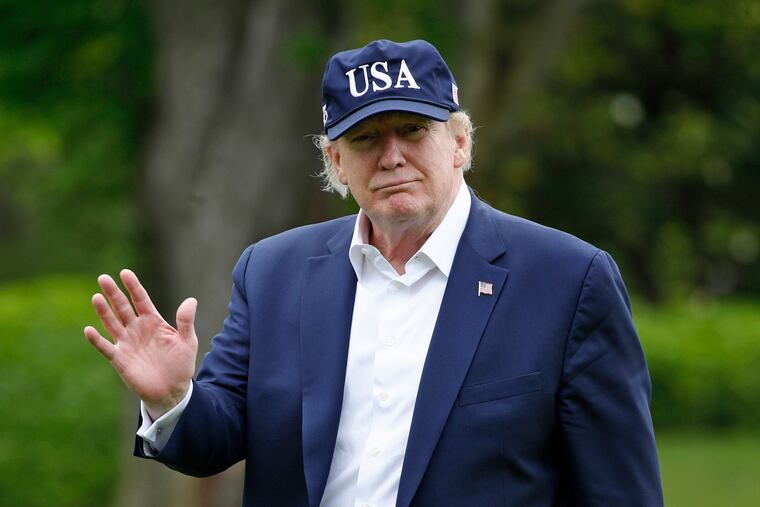Trump had two intelligence briefings on coronavirus in late January, White House official says
The intelligence community briefed the president twice in the eight days before he imposed travel restrictions on China in an attempt to stop the spread of the virus.

The intelligence community briefed President Donald Trump twice in the eight days before he imposed travel restrictions on China in an attempt to stop the spread of the novel coronavirus, said a senior White House official familiar with the briefings.
In a Jan. 23 briefing, Trump was told that the virus was poised to spread globally from China and that becoming infected wouldn't be deadly for most people.
Trump said Sunday night that he was told on Jan. 23 that a virus might be coming but that it wasn't of much import.
"They said it very matter-of-factly," he said during a town hall broadcast on Fox News, adding that the intelligence community would release more information Monday.
The Jan. 23 session was the first time the intelligence community briefed the president on the coronavirus, said the official, who spoke on the condition of anonymity to describe the classified briefings.
The next time intelligence officials spoke to Trump on the topic was Jan. 28, when he received information showing that the virus was spreading outside China but that all deaths remained inside that country, the official said. Trump was also told at the time that China wasn't sharing key data about the virus, according to the official.
The White House official said those were the only times Trump was briefed by the intelligence community about the virus during January. It isn't clear what information the intelligence community said China was withholding, or if Trump was briefed about the incredible strain a major outbreak in the U.S. could place on the health-care system, the economy and Americans' way of life.
The new information sheds more light about what the president and U.S. intelligence agencies knew in the early days of the coronavirus's spread in China. Trump and his administration have come under fire for their early response efforts.
More than 1.1 million people in the U.S. have been infected by the virus, and more than 67,000 have died, the largest outbreak in the world.
Trump has repeatedly pointed to his decision on Jan. 31 to restrict travel from China to rebut critics who say he was too slow to react. The moves were announced three days after Trump's second January intelligence briefing, in which he was informed that the virus was becoming a serious global concern.
U.S. intelligence agencies included warnings about the virus in more than a dozen classified briefings prepared for Trump in January and February, The Washington Post reported on April 27, citing current and former U.S. officials.
The president’s intelligence brief, which is produced each day and contains sensitive information about global threats, included comprehensive articles about the global spread of COVID-19, the disease caused by the novel coronavirus, as well as smaller items about the status of the outbreak, The Post reported.
The daily briefings began to document a new virus originating in Wuhan, China, at the beginning of January but early intelligence was only partial and didn't address the possibility of a major U.S. outbreak, the Post report said.
By mid- to late January, the virus was being mentioned more frequently and Trump was almost certainly told about it orally, according to the Post report.
In a Twitter post on Sunday, the president said "Intelligence has just reported to me that I was correct, and that they did NOT bring up the CoronaVirus subject matter until late into January."
But public health experts and Democrats say the administration wasted time in February by not imposing restrictions on everyday life that could have slowed the virus's spread to every U.S. state.
Trump spent much of that period publicly downplaying the threat and praising China’s response. He continued to hold campaign rallies, traveled to India, played golf in Florida and visited the Daytona International Speedway. He didn’t announce federal social distancing recommendations until March 16.